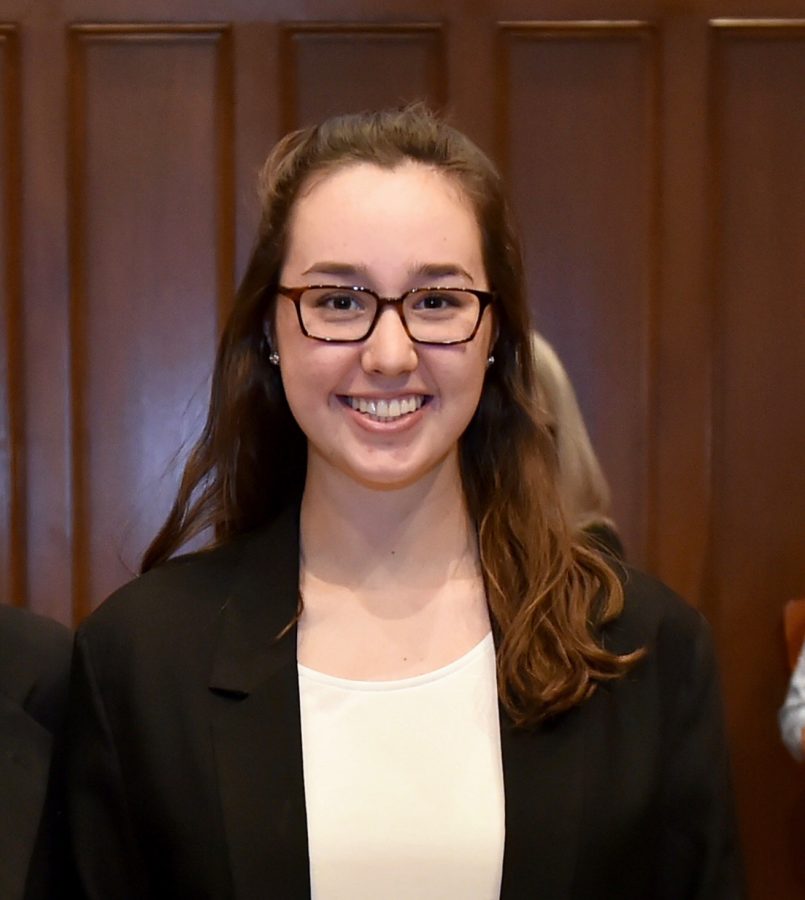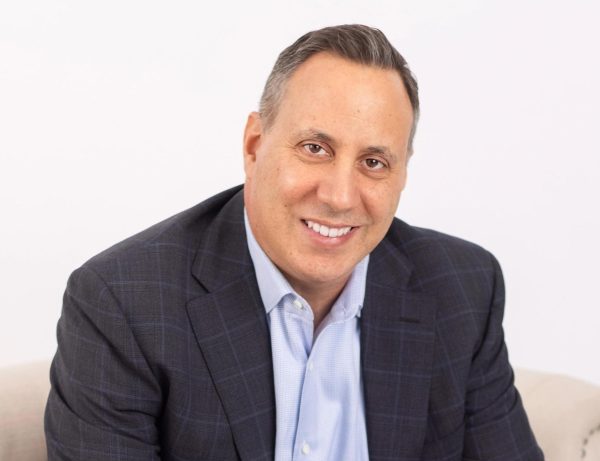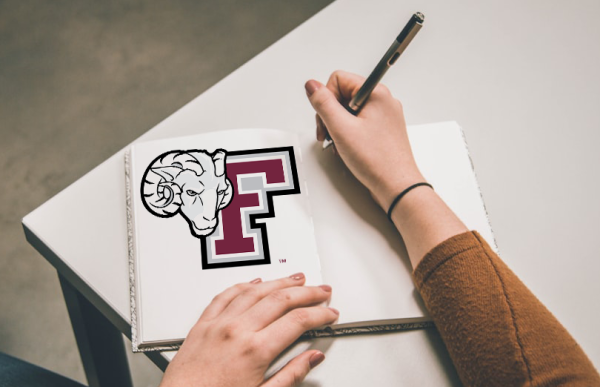Student Researches What It Means to Be A Good Catholic
By Sarah Huffman
Rachel Nolan, FCRH ’20, presented her research pertaining to the question of what it means to be a “good Catholic” at the Research Symposium this semester.
Nolan said last semester in one of her classes, she read an article about a man who called himself a bad Catholic because he struggled to balance his political and religious views. The article said there are many historical figures who would be coined as “bad Catholics.”
“This got me thinking about what it means to be a good Catholic. Is there a single definition of the term? Is it limited to people who go to church every Sunday? What does that mean?” she asked.
Nolan said she is a theology major and has a Catholic background, growing up in the Church and attending Catholic school. She said she approached a past professor, Sarit Kattan Gribetz, asking what to do with her major and Gribetz suggested research. Nolan said Gribetz became her research mentor and was very helpful with the process.
There are two parts to Nolan’s research: historical analysis of the term and interviews with different people within the Fordham community.
In regards to the first part, she said she wanted to explore when the two words “good” and “Catholic” fused together and took on a whole new meaning. She said she used Google Ngram Viewer, which is a program that detects the frequency of a word and how often it has been used since the 1500s. She said she used it to find the first instance of ‘good Catholic’ as a term.
For personal interviews, she reached out to a variety of people with different religious backgrounds including theologian Elizabeth Johnson, a student, Thomas Schirgi S.J., and Professor Mark Chatman. She said she compiled a list of 10 questions to ask them and tried hard to narrow them down to concise questions that really got to the heart of the matter.
Some of the questions she asked included: What does it mean in your opinion to be a good Catholic, Why do you define it the way that you do, and are there any texts that influence your opinion?
Nolan said she found three main takeaways. The first was that the term is dynamic and does not have one set definition. She said the first usage in 1825 shows that because it was used in an Irish story called “The Good Catholic or The Honest Farmer,” about two men who argue what a good Catholic means.
According to Nolan, this proves the controversy and debate is as old as the term itself.
“The second takeaway was that a good Catholic can and sometimes should dissent from the institutional church in order to create and maintain a vibrant tradition of a community of faith,” she said.
Nolan said this was important to her because she has struggled with balancing her personal beliefs and remaining in the church.
The third was that the term good Catholic wields a lot of power, which was a consensus among everyone she interviewed.
“It can be helpful because it encourages self-reflection and betterment of one’s own faith but it can be harmful and a dangerous term when its brandished as a weapon to judge or exclude others from the church,” she said.
“I think it’s important that we’re engaging in topics like this. It’s important not just for Catholics because evaluating labels and categories, especially as they pertain to people within the religious sphere, can be very polarizing and can be very ostracizing,” she said.
According to Nolan everyone has this idea of a good Catholic who goes to church every Sunday, but everyone she talked to said a person should define what being a good Catholic means for themselves. She said debunking that and understanding that not everyone endorses this idea is important for college and Fordham students.
She said it encourages people to think critically, challenge the church and still be considered good.
She said doing the research helped her become better at looking at and choosing articles.
“Discerning what is important to your research and deciding what is simply not was a hard process,” she said. “I would spend three hours doing research and then find that it gave me nothing. I would go down the rabbit hole.”
This was Nolan’s first time presenting her own research. She thought it was very different because the stakes are higher when saying “this is what I believe.”
Nolan said the process for the research symposium was a little unclear, especially because it was her first research project and her mentor’s first time advising. She said without a great mentor, she would have been lost.
Nolan suggested that there should be different standards for STEM research and humanities research because they are of such different natures.
“Presenting at the symposium itself was awesome. Hearing other people’s research was really interesting. It was very validating and gratifying,” she said. “My panel was all female and they all had something to do with religion and theology, so witnessing and being a part of that was really awesome.”















































































































































































































